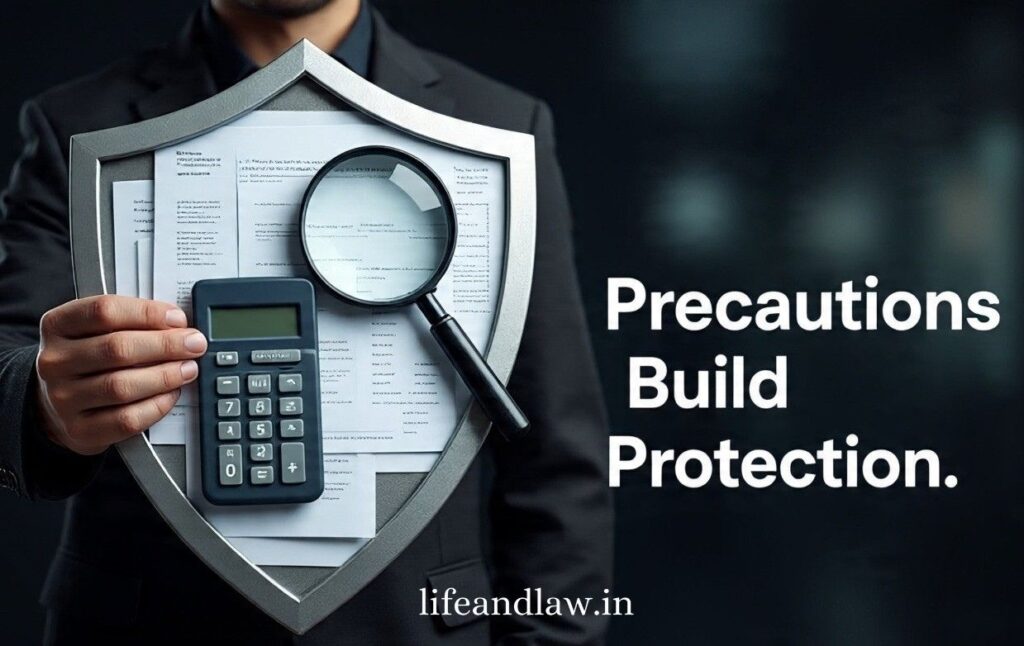Trending

Insurance is essential for protecting individuals and families from unforeseen financial issues connected to health, life, property, or automobiles. Despite its importance, many people buy insurance without completely comprehending the terms or assessing their actual needs, which can result in problems, insufficient coverage, or even fraud.
This article attempts to assist readers make informed insurance decisions by explaining crucial precautions and important factors.Individuals may guarantee that their insurance provides effective and reliable financial protection when it’s most needed by studying policy terms, comparing plans, and checking insurer reputation.
Insurance is a contract between a policyholder and an insurance firm in which the policyholder pays regular premiums and the insurer offers financial compensation for unforeseen catastrophes such as illness, death, or property loss.
Insurance serves as a financial safety net. It provides:
1.Protection from unforeseen financial catastrophes.
2.Protecting families during medical emergencies or after death.
3.Compensation for property damages.
4.Risk management for enterprises.
1.Choose according to your needs
Always evaluate your financial situation and protection needs. Consider purchasing life insurance to provide financial support for your family. Health insurance can aid you manage your medical bills. Choose motor or house insurance for vehicle and property safety. Selecting the appropriate type gives the greatest advantage.
2.Check the insurance company’s credibility
Check that the company is approved by the IRDAI (Insurance Regulatory and Development Authority of India). Check the Claim Settlement Ratio; higher ratios indicate greater reliability and smoother claims.
3.Compare Policies of Multiple Companies
Rather than sticking with one firm, evaluate options from multiple providers. Consider rates, coverage limits, exclusions, and additional benefits. Use online comparison tools such as PolicyBazaar and Coverfox.
4.Read Reviews and Use Online Portals
Online portals provide honest comparisons and user feedback. Read reviews on Google, MouthShut, or IRDAI’s official website to learn about other consumers’ actual experiences. Consistent complaints are a red flag.
5.Ask an insurance expert or advisor
If you’re having trouble understanding policy intricacies, see a professional advisor. A reputable insurance expert can assist you in selecting an appropriate coverage. However, before acting on their recommendations, make sure they are credible.
6.Understand the terms, exclusions, and waiting periods
Know what is covered (coverage), what is not (exclusions), and how long you must wait before receiving benefits (waiting period). Understanding this helps to avoid misconceptions during claims.
7.Check All Documents Thoroughly
Examine the proposal form, insurance document, claim process, and terms and conditions. Keep a copy of all vital documents protected. If you have any doubts, consult with the agent or company.
Choosing an insurance policy entails more than just focusing on inexpensive costs or extensive coverage. Understanding the policy’s terms, exclusions, and claim procedures is critical because insurance is a significant financial investment. A well-informed decision provides dependable security for you and your family during emergencies.
This article was written by Adv. Abdul Mulla, a legal specialist on insurance and finance. Visit his websites www.asmlegalservices and www.lifeandlaw.in for more information on legal rights, consumer awareness, and insurance advice.
Adv. Abdul Mulla (Mob. No. 937 007 2022) is a seasoned legal professional with over 18 years of experience in advocacy, specializing in diverse areas of law, including Real Estate and Property Law, Matrimonial and Divorce Matters, Litigation and Dispute Resolution, and Will and Succession Planning. read more….
Copyright BlazeThemes. 2025